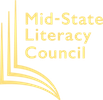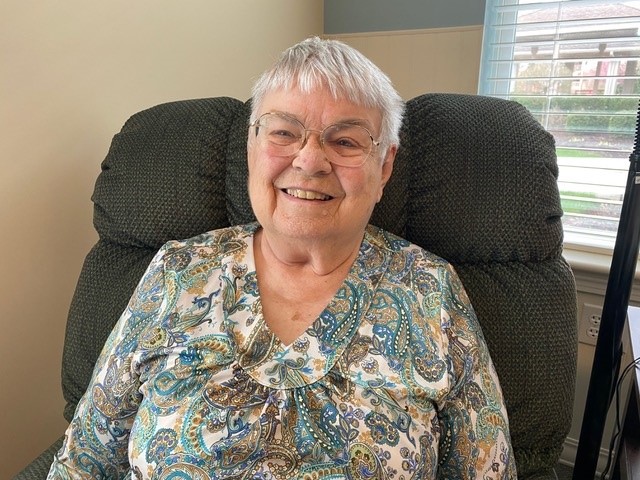Mid-State Literacy Council (MSLC) has become a well-known name around the State College area for both volunteers and adult learners. The presence of the organization, however, has not always been so established. I recently had the pleasure of speaking with Ruth Kistler, one of the founders of MSLC, on the small beginnings of the organization and her influential role in it. From our conversation about her past and Mid-State Literacy Council’s beginnings, I could quickly tell that her love for language and her desire to share it with the world was a core part of her identity. She exuded a love not only for reading, but also for the community of volunteers and contributors that enabled MSLC to grow and achieve its full capabilities over the years. This humble and compassionate attitude that Ruth held especially stood out to me throughout our talk. Ruth’s understanding character is what allowed her to believe so strongly in MSLC even during its rough beginnings.
As a child, Ruth spent many summers near her family’s farm in Tioga County, Pennsylvania. Her passion for reading grew while she was there, as her grandmother would frequently bring books home from the bookmobile that would visit the farm. With these books, her grandmother would create a makeshift library in their kitchen where people from the community could visit and read together. Ruth noted that reading was simply a way of life for her and not being able to read was unimaginable. Inheriting a love for reading and the English language became the foundation of the future organization she would help to build.
After moving to the State College area, Ruth’s involvement in the Lutheran Church became the starting point of the Mid-State Literacy Council that is known today. At the time, women in the church were providing training for those who wanted to help others improve their literacy. Eventually, some of the women decided to create an official council for this work. As the chairman, Ruth began promoting their services by placing leaflets around town in common places, such as the offices of doctors and dentists, to help spread the word. This gave the council some initial traction, but many more challenges had to be overcome during its early beginnings. Being such a small, unknown group without a proper office or telephone made finding adult learners difficult, especially when many adults were ashamed of their inability to write or read. Another issue was the council work, as most of the women had no experience with administrative duties or business logistics. Eventually, MSLC received funds from the larger nonprofit organization United Way to help grow the council. These funds were extremely helpful, because the council no longer had to pay for learning materials themselves or ask students to obtain them, which allowed for the accommodation of more students.
With funds but limited recognition, the next challenge to overcome was securing more students and volunteers. To get more volunteers, the council produced short skits portraying the lives of individuals unable to do simple tasks, such as reading their medication directions or getting jobs, because of their illiteracy. The council also received a telephone from another volunteer organization, which helped them reach out more easily to potential students and tutors. One of the first volunteer tutors who made significant contributions to Mid-State Literacy Council’s beginning was Martha Vesper. Instead of waiting for external trainers to give teaching lessons to volunteers, Martha would train tutors at her own expense and give hours of her time to improve rates of literacy in the community as early as possible. Without Martha and her dedication to teaching, the organization would not have been able to grow as quickly as it did. Due to her contributions and those of many other volunteers, the MSLC name became better established over time to become the organization that is well-known in the Penn State community today.
Although Ruth initially believed that MSLC would not be needed anymore after teaching just a few individuals how to read, she soon realized that illiteracy would never be entirely “fixed.” With incoming immigrants, transfer students, adults who simply need help reading or writing, and a widened meaning of literacy, including computer literacy, a council like MSLC became an essential service. Ruth decided to provide a permanent learning environment where adults could come to improve their literacy and not be ashamed to seek help. As volunteers and students can see today, Ruth accomplished this goal and now students are even becoming teachers at MSLC in the hopes of giving back what they have received. This goes to show, in the words of Ruth Kistler, that “such small beginnings can touch the lives of so many people.” No matter the reason for their enrollment at Mid-State Literacy Council, learners can now seek an education because of the numerous volunteers and teachers who hope to uphold Ruth’s message for many more years to come.



